South Sudan calls for an end of violence against women and early marriage
March 8, 2013 (BOR) – Hundreds South Sudanese citizens and political leaders converged on Bor, the capital of Jonglei state, to celebrate International Women’s Day on Friday, where speakers called for early marriage and violence against women to end world’s youngest country.
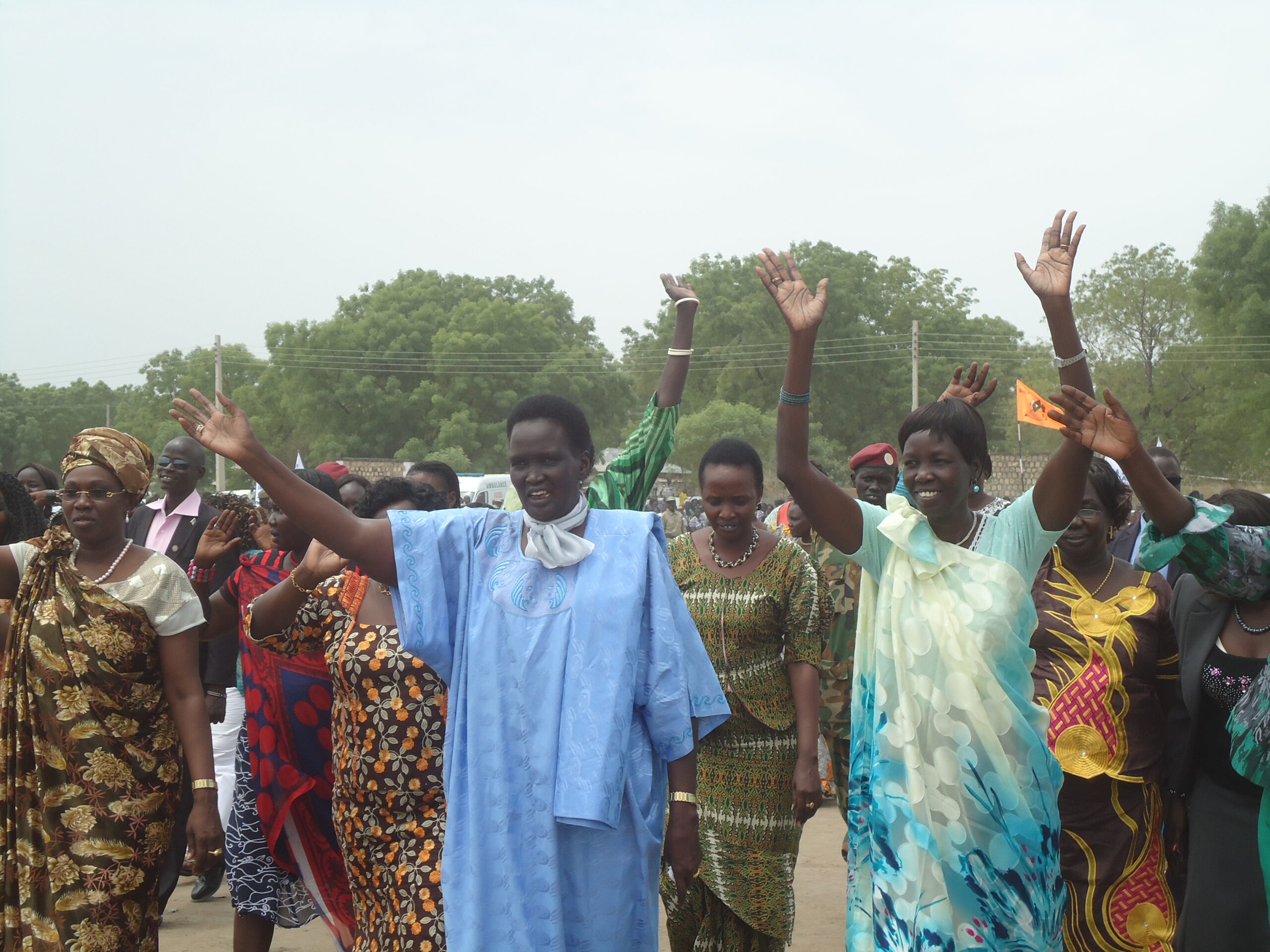
Women from the army, police, prison services and fire brigade were joined by women farmers’ groups and businesswomen to march in Bor’s freedom square to welcome the guest of honour, Rebecca Nyandeng, the advisor on gender and human rights to South Sudan’s president.
South Sudanese singers, including Mary Boyoy, from the Murle tribe and Tarifa Pathay from the Lou Nuer group sang songs promoting unity between South Sudan’s many tribes.
Primary school pupils recited a poem, asking society not to look at women only as a source of wealth or producers of children. Families often marry girls off at a young age as they benefit from the tradition of bride prices. The children’s poem said that behind each powerful leader is a powerful woman.
Addressing the ceremony in Bor, Nyandeng, called up on South Sudanese families and communities to respects women, acknowledging that “our fellow women are still suffering in the villages, fetching water [over a] long distance”.
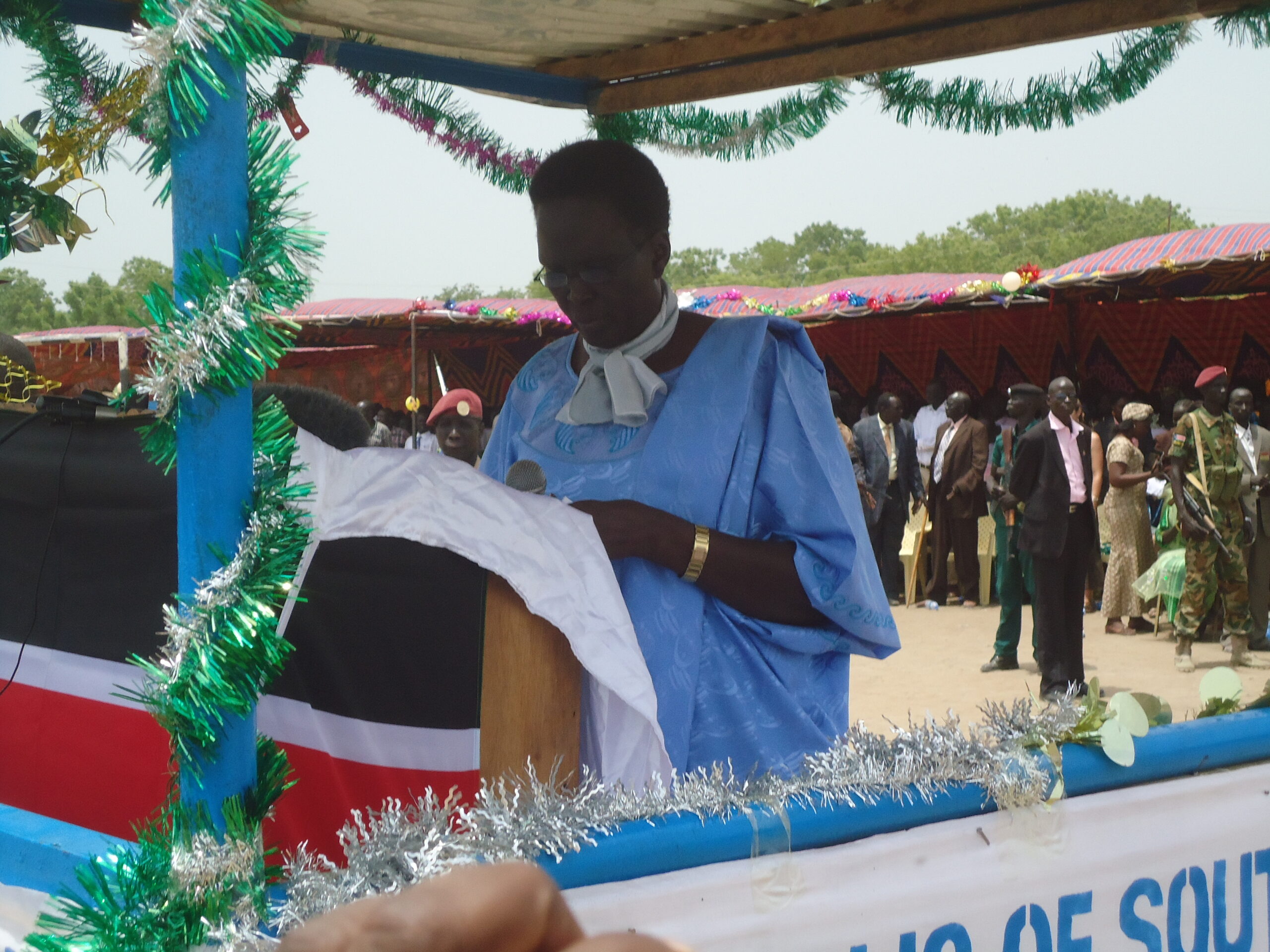
Nyandeng is the widow of John Garang, the former leader of the SPLM/SPLA rebels who have governed South Sudan since 2005. She said the government was not doing enough, for reasons she did not explain, to “bring town to people”.
The policy of bringing services to the rural population was the vision of her late husband, who was the president of the autonomous region of South Sudan and First Vice President at the time of his death in a helicopter crash in mid-2005.
Nyandeng called for more women’s participation in all walks of life both in the state and national government.
“We, the women, let us help our families by contributing to the family budget. If you don’t have anything [money] of your own, the husbands will be rough every time you ask them to give you more money to buy food. That is why they say ‘what about that money I gave you, how did you finish it?’ We must not be receivers but producers of wealth”, she added.
The gender and human rights advisor said that sending more girls to schools will help to reduce the gap between men and women in the new country.
However, she denounced the state’s schools in rural areas, calling on communities to rebuild village schools with local materials.
“Today’s school structures are discouraging, when children come to schools, they cannot see the differences between home and the school. This makes some children to go back home just to play”, she told the crowd.
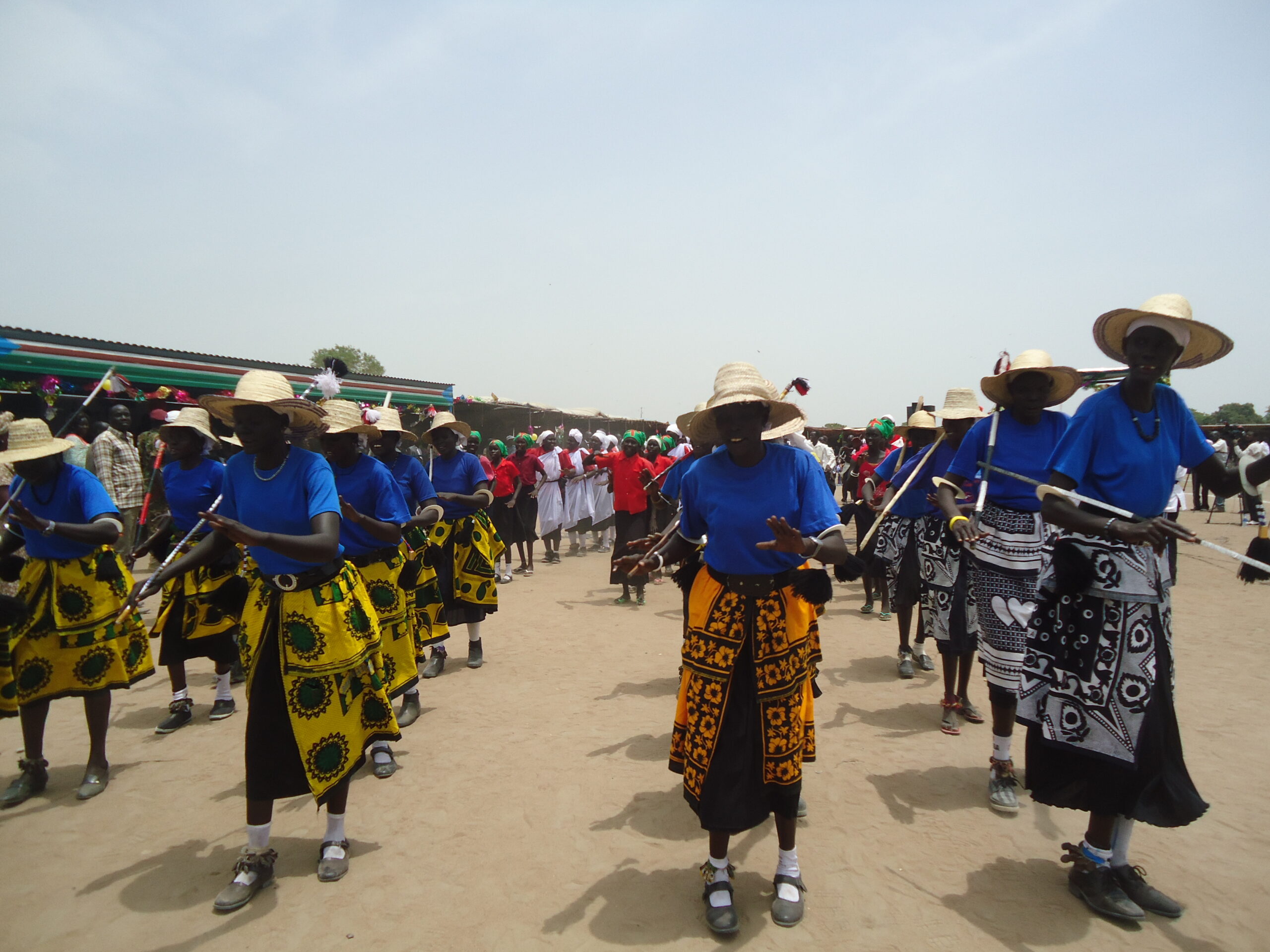
She also encouraged the women to invest in agriculture so it can become a source of income.
“Look at me, I came from Juba to my farm, removed all the bangles and everything and cultivated for three months in my farm. I harvested over 1,000 bags which gave me about 400,000 [South Sudanese] Pounds”, she said.
“This is greater than my annual pay as the advisor to the president. If you do the same, you will be rich quickly.”
Jonglei’s minister of gender, child and social welfare, Rachael Anok, said that there is nothing wrong with pupils attending their classes under trees.
“I was taught in a grass-roofed class, and now I am the minister”, she told the celebrators.
The state governor of Jonglei, Kuol Manyang Juuk, criticised used the event to denounce the South Sudanese cultural practices, such as early marriage, that prevent girls from completing their education. He calling on parents to treat both boys and girls equally as this was the reason for the wide gap in literacy rates.
“During the war, the SPLA leadership took all the boys to Ethiopia and Kenya to get better learning opportunities but girls remained with their mothers at home. Those who went to other places got good education”, he said.
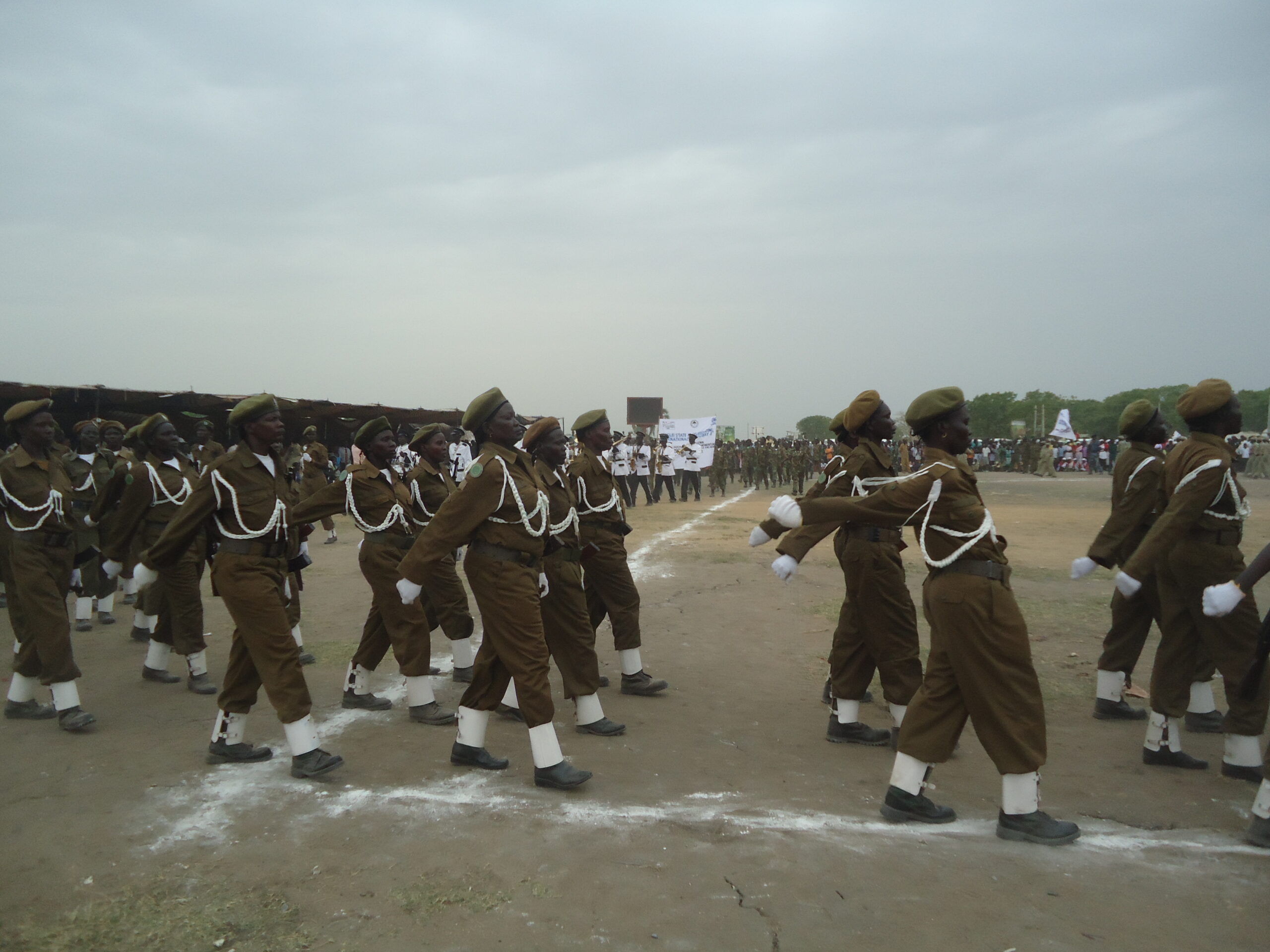
Men are the main cause of domestic violence in South Sudan, the governor said, adding that some men believe that beating women is the best way of disciplining them.
“Violence is not the best way of problem solving, but worsens the situation”, he continued.
South Sudan’s minister of gender, child and social welfare, Agnes Kwaje Lasuba, while addressing the public during the celebration, urged the public to avoid gender related violence.
She said that girls should not be allowed to marry before before the age of eighteen and urged parents to stop forced marriages. Girls are used as tools to get wealth by their parents, the minister said.
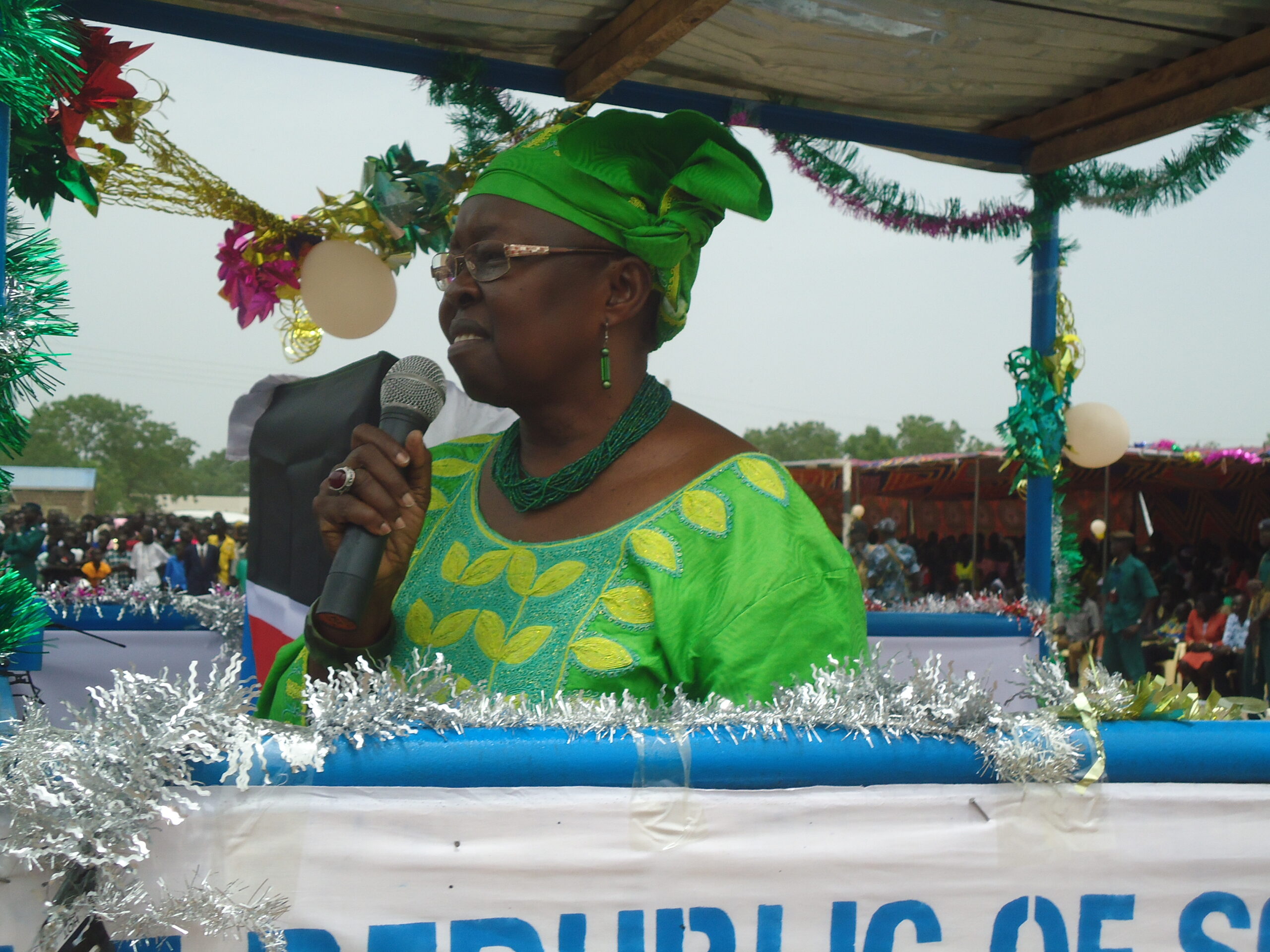
President Salva Kiir’s message, as read by his advisor on gender in Bor, assured Jonglei citizens that the South Sudan government has not forgotten the plight of women in the conflict affected state.
“We have enough forces in Jonglei to make sure that peace comes back soon”, said the president in his message.
The president asked the community to abolish cultures that encourage early marriage and urged for women to empower themselves by sending girls to school, in order to fulfill achieve the UN’s millennium goals, which aim for all children to be completing primary school by 2015 .
MEN COOK FOR WOMEN IN TWIC EAST
Twic East celebrated International Women’s Day by men cooking for women, the county commissioner Dau Akoi told Sudan Tribune from his headquarters in Panyagoor.
Many South Sudanese men refuse to do house work such as cooking, fetching water or any work that has traditionally been assigned to women in the household. Last year the Jonglei governor said he planned to outlaw laziness by banning men from playing games under trees to encourage them to cultivate the country’s vast fertile lands.
Women groups in Twic East performed dramas discouraging early marriage, which is often associated with South Sudan’s high maternal mortality rate. They also argued that girls would be unable to care for their own children before the age of 18.
(ST)
International Women’s Day 2013
Coverage relating to Sudan and South Sudan around international women’s day.
Storified by Sudan Tribune· Fri, Mar 08 2013 13:06:16
